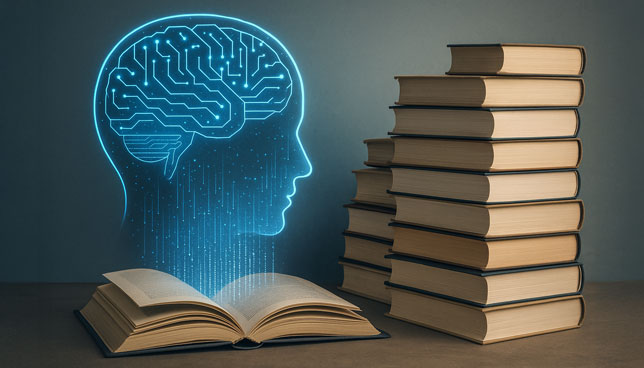Federal Court docket Guidelines AI Coaching with Copyrighted Books Honest Use
A federal choose has dominated that synthetic intelligence firm Anthropic didn’t violate copyright legislation when it used copyrighted books to coach its Claude chatbot with out creator consent, however ordered the corporate to face trial on allegations it used pirated variations of the books.
Choose William Alsup of the U.S. District Court docket for the Northern District of California issued the ruling Monday in a lawsuit filed by three authors towards Anthropic. The choice represents a big improvement for AI firms going through copyright litigation over their coaching strategies.
Court docket’s Honest Use Willpower
Alsup dominated that Anthropic’s use of copyrighted books to coach its giant language fashions constituted truthful use underneath copyright legislation, a discovering evocative of the early-2000s battle between Google and The Creator’s Guild over the Google Books book-scanning undertaking. The choose in contrast Anthropic’s observe to an aspiring author studying copyrighted texts “to not race forward and replicate or supplant” these works, “however to show a tough nook and create one thing completely different.”
The lawsuit was filed by authors Andrea Bartz, Charles Graeber, and Kirk Wallace Johnson, who alleged Anthropic used their work with out consent in what they termed “largescale theft.”
Had Choose Alsup dominated that utilizing copyrighted books for AI coaching constituted copyright infringement, it could have basically altered the AI improvement panorama. Firms would possible have confronted two major paths: both negotiate costly licensing offers with publishers and authors for coaching information, or pivot to utilizing solely public area supplies and authentic content material.
The licensing strategy would have created vital limitations to entry for smaller AI firms whereas doubtlessly benefiting established gamers with deeper pockets. We would have seen the emergence of large content material licensing consortiums, much like how music streaming companies negotiate with report labels. Publishers and authors would have gained substantial leverage and new income streams from AI firms.
Alternatively, if firms had been pressured to rely totally on public area content material, AI fashions might need developed in a different way — doubtlessly with data cutoffs a lot earlier in historical past, or with notable gaps in modern understanding. This might have led to a bifurcated AI ecosystem the place some fashions had entry to fashionable data by way of costly licensing whereas others remained restricted to older, freely out there content material.
Piracy Allegations to Proceed
Whereas dismissing the copyright infringement claims, Alsup ordered Anthropic to face trial on allegations it knowingly obtained copies of greater than 7 million books from piracy web sites. The corporate later bought copies of some books, in accordance with court docket paperwork.
The choose expressed skepticism concerning the firm’s piracy protection, stating he doubted “any accused infringer may ever meet its burden of explaining why downloading supply copies from pirate websites that it may have bought or in any other case accessed lawfully was itself fairly essential to any subsequent truthful use.”
“That Anthropic later purchased a duplicate of a e book it earlier stole off the web is not going to absolve it of legal responsibility for the theft, however it could have an effect on the extent of statutory damages,” Alsup added.
Firm Response
Anthropic mentioned in a press release it was happy the court docket acknowledged that utilizing revealed works to coach giant language fashions was in keeping with copyright legal guidelines “in enabling creativity and fostering scientific progress.”
The corporate disagreed with the choice to proceed to trial relating to its “acquisition of a subset of books and the way they had been used,” and mentioned it was “evaluating all choices.”
If the court docket had additionally dismissed the piracy allegations, it could have basically given AI firms a inexperienced gentle to amass coaching information by way of any means obligatory, so long as the final word use certified as truthful use. This might have established a problematic precedent the place the strategy of acquiring copyrighted materials grew to become irrelevant if the top use was deemed transformative.
Such an consequence might need inspired extra aggressive information acquisition practices throughout the trade and doubtlessly undermined conventional content material markets. It may have created a state of affairs the place piracy grew to become a de facto acceptable methodology for acquiring coaching information, so long as firms may argue truthful use for his or her AI techniques.
Background
Based on court docket paperwork, after inner issues arose about utilizing pirated books, Anthropic employed former Google Books govt Tom Turvey to acquire “all of the books on the earth” whereas avoiding authorized points.
Relatively than looking for business licensing agreements with publishers, the corporate bought tens of millions of print books from retailers, many used, then scanned them into digital type. Alsup famous the corporate may have employed workers to create authentic content material for coaching however that might have “required spending extra.”
The authors who filed the lawsuit mentioned Anthropic’s actions made “a mockery of its lofty targets.”
Concerning the Creator
John K. Waters is the editor in chief of quite a few Converge360.com websites, with a give attention to high-end improvement, AI and future tech. He is been writing about cutting-edge applied sciences and tradition of Silicon Valley for greater than two a long time, and he is written greater than a dozen books. He additionally co-scripted the documentary movie Silicon Valley: A 100 Yr Renaissance, which aired on PBS. He might be reached at [email protected].



